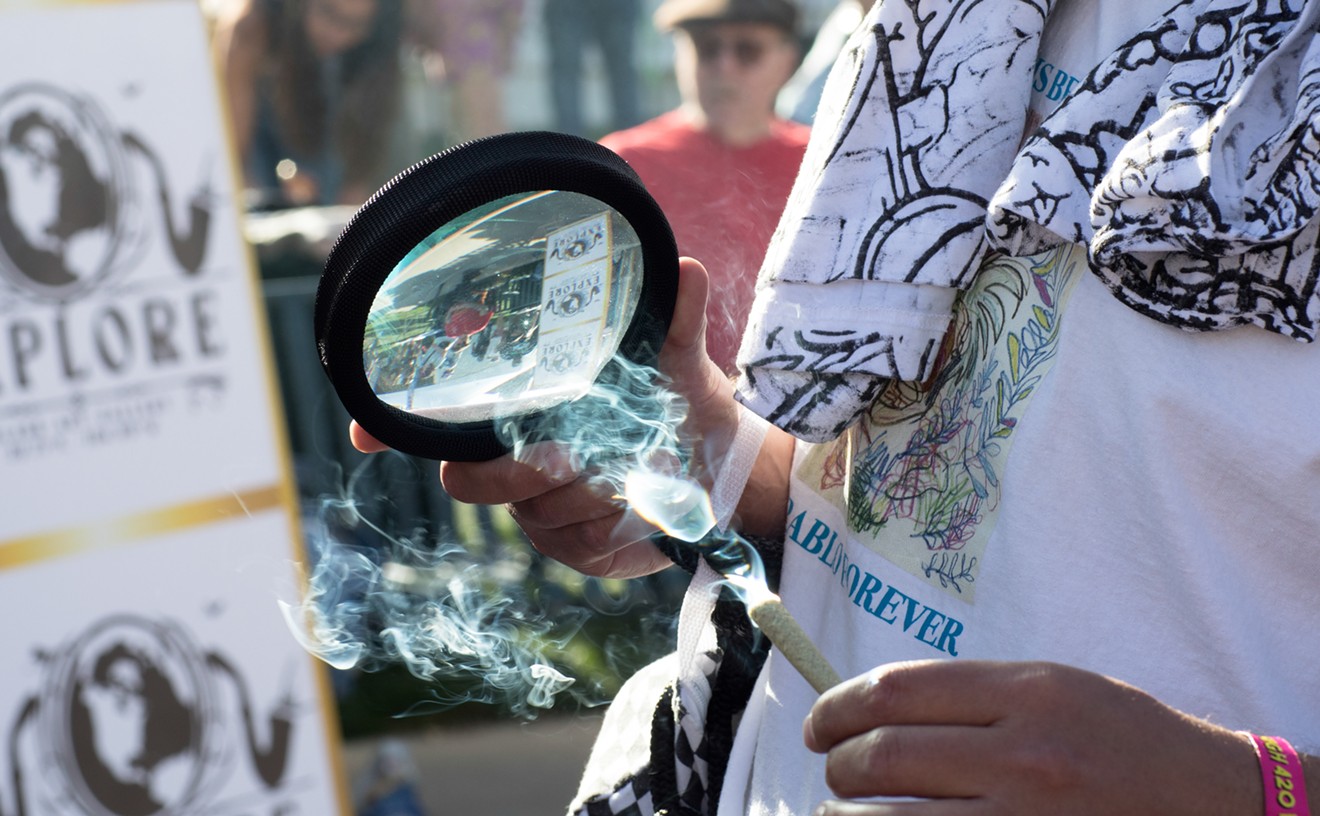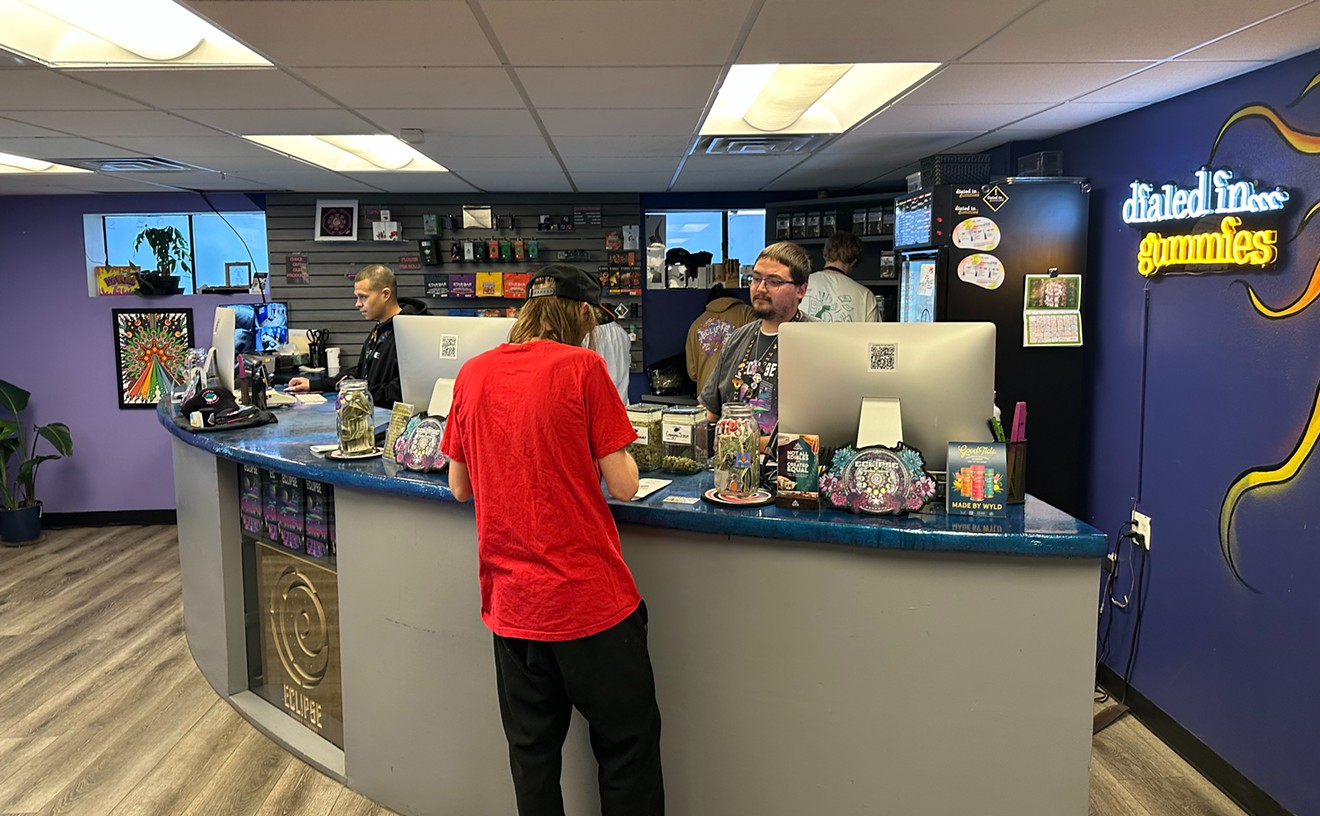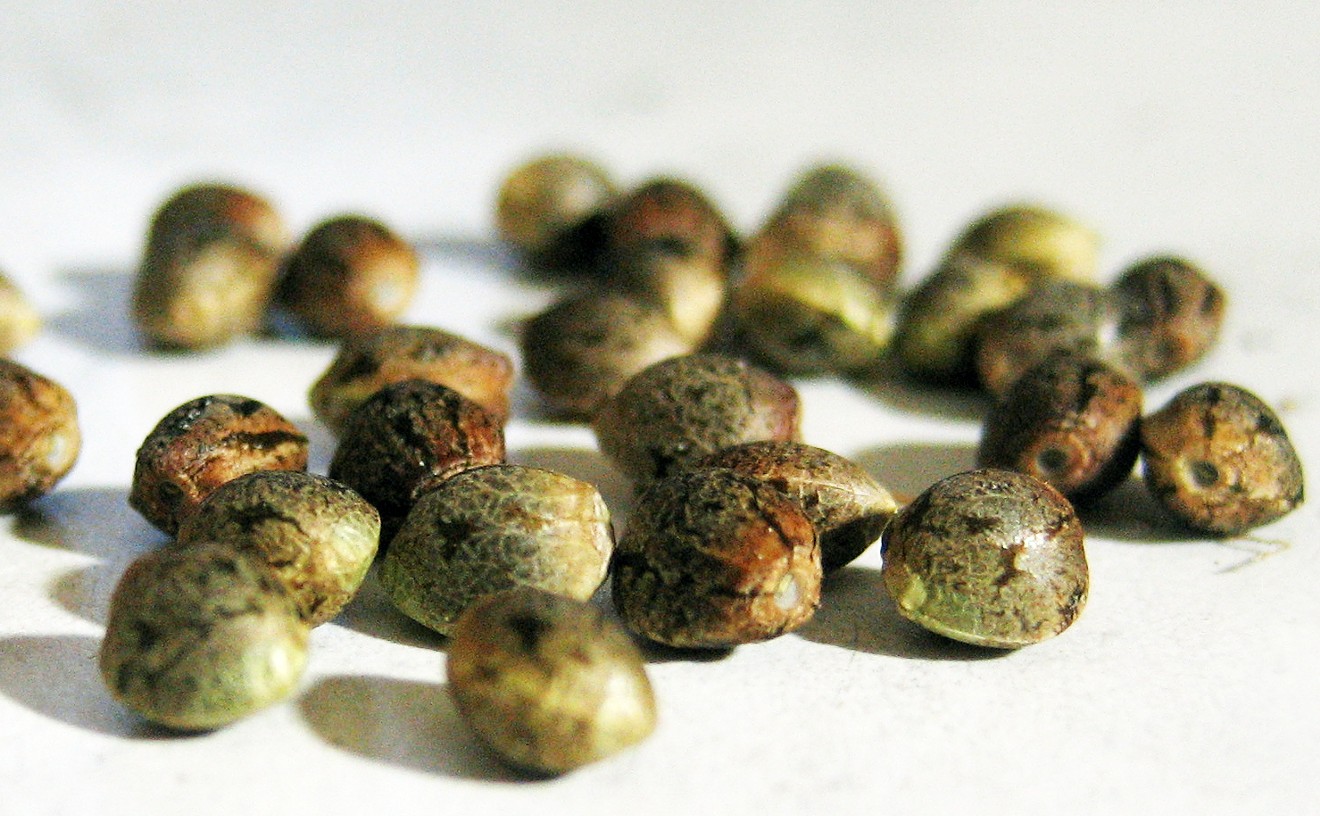Colorado's legal cannabis scene has seen its fair share of turnover in the five years since Amendment 64 was approved in November 2012, but some of the original cast and crew came together for a victory lap on November 2 as they looked back on pot's slow and steady race to normalcy.
Usually defending themselves against opponents or appealing to regulators in Colorado and Washington, D.C., some of the plant's most prominent advocates finally let their guard down for a few hours as they retraced their footsteps, victories and defeats during a 64 anniversary celebration with the Colorado State University Morgan Library.
The library's Archives and Special Collections division started an initiative in 2015 to collect and document media coverage, oral histories, business and political materials, scholarly opinions and other content pertaining to the marijuana and industrial hemp movements in Colorado. To commemorate the five years since Colorado voters chose to legalize cannabis, the library showcased some of its collection at the CSU Denver Center while a few of its contributors looked back on their efforts.
Mason Tvert, co-author of 64, had spent about eight hours orally documenting his experiences since the early 2000s for the CSU archives in what proved a "cathartic experience," he said. "I was excited when this came up, because it's important to document," Tvert told the November 2 gathering. "Quite frankly, that's been my job for the past ten years."
After nearly getting sent to jail for cannabis possession while in college in Virginia, Tvert decided to advocate for cannabis legalization. He founded a pro-pot group, Safer Alternative For Enjoyable Recreation, and began working to change punishments for cannabis possession on the campuses of CSU and the University of Colorado Boulder. SAFER's petitions and grassroots efforts helped convince the universities to punish cannabis possession the same way they did alcohol, which Tvert credits as the spark for statewide legalization.
Prominent support was hard to come by at first, he noted, but as advocacy groups like SAFER, the Marijuana Policy Project and Students for Sensible Drug Policy continued to have more success, they were able to get more support from larger political organizations such as the American Civil Liberties Union and the National Association for the Advancement of Colored People. "A lot of organizations try to bring policy up to date with the facts, but we wanted to bring the people up to date with the facts," he said. "It's never going to end."
But after the goal of legalization was achieved in Colorado, proponents faced a new set of battles. Wanda James told the group that she's just happy to be fighting those battles through democracy and bureaucracy instead of behind bars. James, the first black woman to own a dispensary and edibles company in America, smoked joints regularly on the CU Boulder campus when she went to school there in the ’80s – but she realized the bubble she was living in after meeting her brother for the first time a few years later.
Her brother had been in prison, arrested for being caught with 4.5 ounces of cannabis. "I didn't believe him at first. I made him show me the court documents," she explained. "Cannabis is an equal-opportunity plant, so why are the majority of people arrested for it black and brown?" Hurt by the hypocrisy of being able to operate a legal cannabis business in Colorado while black kids in Alabama go to prison for selling dime bags, James and her husband, Scott Durrah, have been championing for minorities in the cannabis industry since the unregulated days of 2008 and earlier.
"This has been an ongoing mission for me for many, many years," James said. "We still have a lot of work to do. My job moving forward is to normalize it. I'm a cannabis connoisseur. I'm very proud to be a connoisseur." Today James owns Simply Pure, a dispensary in the Lower Highland neighborhood, and a cannabis marketing and communications firm, Cannabis Global Initiative, that has worked with Caribbean nations to legalize cannabis.
The CSU library started collecting the stories of Tvert, James and many others involved in all sides of the green rush in 2015, when it began its cannabis collecting initiative. CSU archivist Linda Meyer has been heading the project since its original proponent and coordinator, Janet Bishop, moved on to another job. As the state's leading agricultural university, CSU had a responsibility to document hemp and marijuana, Meyer believes.
"Colorado State is the land-grant university. We are agriculture, and marijuana is a commodity, so it was our responsibility to cover it," she said. "We had to work the channels of administration to get it started because it was such a controversial topic, but we're very proud of it."
Land-grant universities are American colleges that were created under the Morrill Acts of 1862 and 1890, which granted federal land to states so that they could establish and endow institutions of higher learning; the intent was to create more agriculture, science and engineering programs in colleges around the country. CSU, originally named Colorado A&M (Agricultural and Mechanical), is Colorado's only land-grant university.
While the November 2 event was mostly attended by proponents of legalized cannabis, the goal of the archive is to be objective and show both sides — though Meyer admittedly has a harder time finding anti-pot materials and cannabis opponents for contributions. "We've always wanted both sides of the argument — that's our position," she said. "We haven't received much on the other end. We're still looking for some of that."
[
{
"name": "Air - MediumRectangle - Inline Content - Mobile Display Size",
"component": "12017618",
"insertPoint": "2",
"requiredCountToDisplay": "2"
},{
"name": "Editor Picks",
"component": "17242653",
"insertPoint": "4",
"requiredCountToDisplay": "1"
},{
"name": "Inline Links",
"component": "18838239",
"insertPoint": "8th",
"startingPoint": 8,
"requiredCountToDisplay": "7",
"maxInsertions": 25
},{
"name": "Air - MediumRectangle - Combo - Inline Content",
"component": "17261320",
"insertPoint": "8th",
"startingPoint": 8,
"requiredCountToDisplay": "7",
"maxInsertions": 25
},{
"name": "Inline Links",
"component": "18838239",
"insertPoint": "8th",
"startingPoint": 12,
"requiredCountToDisplay": "11",
"maxInsertions": 25
},{
"name": "Air - Leaderboard Tower - Combo - Inline Content",
"component": "17261321",
"insertPoint": "8th",
"startingPoint": 12,
"requiredCountToDisplay": "11",
"maxInsertions": 25
}
]












